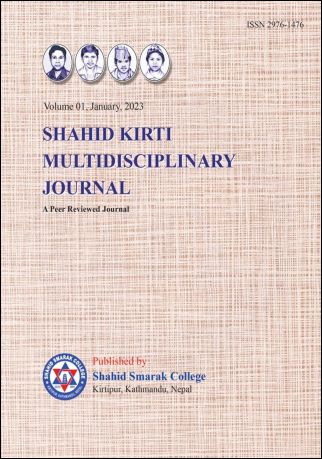Role of Cooperative Planning in Mixed-Economy and Its Impact on Development in Nepal
DOI:
https://doi.org/10.3126/skmj.v1i1.60506Keywords:
Cooperatives, development planning, mixed-economy, poverty reductionAbstract
This paper discusses the importance of cooperative planning in the country that followed the mixed economy. This paper is based on the qualitative approach and the data were collected through secondary sources. A developing country like Nepal may not be adequately sustainable without the development of both private and public welfare sectors. After 1950, more enterprises were introduced in Nepal to uplift the existing status of the cooperatives for development in a mixed economy; the effort could not able to give satisfactory results however, the path of gradual and steady economic recovery as market space in development found to be started for the pro-poor in Nepal. Cooperative planning has introduced the principle of three pillars (public, private, and cooperative) of development in a mixed economy to address the demand and interests of poor and marginalized people in society. For this purpose, co-operatives have been providing foundations for uplifting their livelihood through the process of capital formation, landing, and saving in Nepal. However, most of the cooperatives in Nepal have operated and are controlled by rich and elite sections of society. Consequently, the activities of cooperatives are not found to follow the pathway of the three pillars of the economy. Hence, there is still a gap between reality and rhetoric in the operation of cooperatives in Nepal that should be reduced to uplift the livelihood of the poor and marginalized people.




